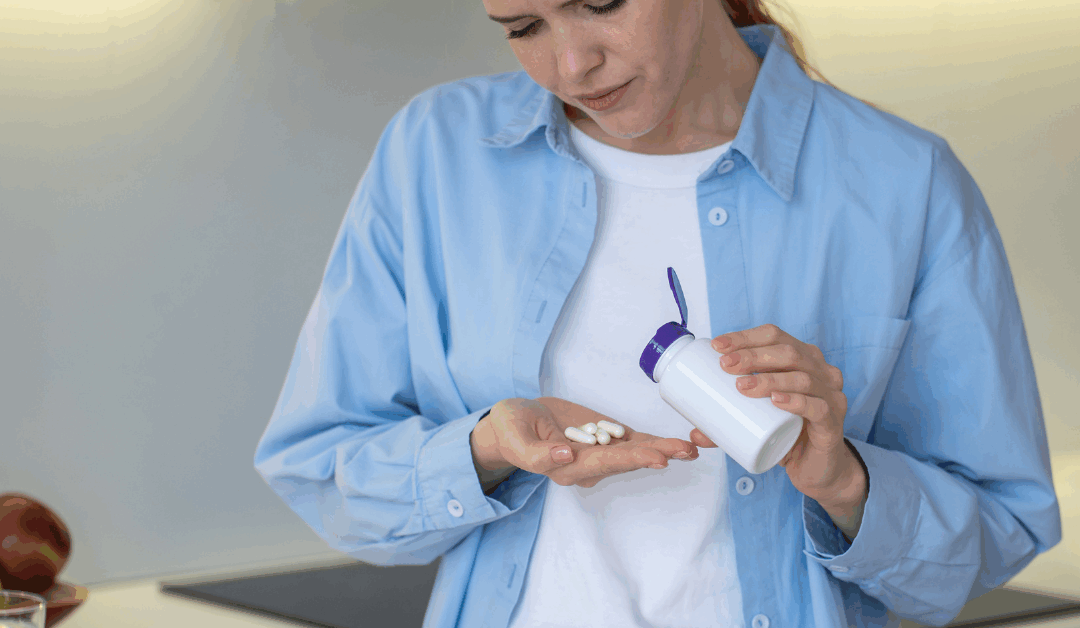We get it. The sun is shining, the days are longer, and maybe—just maybe—you’re starting to feel a little lighter. It’s that beautiful shift from winter to spring where everything feels a little more alive. Suddenly, there’s hope in the air. You’re going on walks again. Smiling at the sky. Having a few good days in a row. And if you’ve been on medication for depression, this is when the thought might creep in:
Do I even need this anymore?
It’s tempting to stop. To toss the pill bottle in the cabinet and ride the sunshine high. But we want to gently, lovingly, firmly say—don’t stop your antidepressants cold turkey.
Let’s talk about why medication for depression matters year-round, what to consider before making any changes, and how to work with your doctor (like us at Blissful Minds!) to make the healthiest decision for you.
What Is the Most Popular Drug for Depression?
There isn’t one “best” medication for depression, because what works beautifully for one person might not be the right fit for another. That said, some of the most widely prescribed medication for depression includes:
- Sertraline (Zoloft)
- Fluoxetine (Prozac)
- Escitalopram (Lexapro)
- Citalopram (Celexa)
- Bupropion (Wellbutrin)
These medications typically fall into categories like SSRIs (Selective Serotonin Reuptake Inhibitors) or SNRIs (Serotonin-Norepinephrine Reuptake Inhibitors). They work by balancing neurotransmitters in the brain—chemicals like serotonin and norepinephrine that affect mood, energy, and focus.
While some people feel relief within a few weeks, others may need more time or a different dose.
And that’s okay. The process of finding the right medication for depression is very personal—and something we’re here to help guide you through with compassion and expertise.
How Do You Know When You Need Antidepressants?
This is one of the most common questions we hear. The truth is, there’s no “perfect” moment or checklist that says, Now’s the time! But here are some signs that medication for depression might help:
- You’ve tried therapy, self-care, and lifestyle changes—but your symptoms persist
- You feel numb, flat, or like you’re moving through life in a fog
- Your sleep, appetite, or energy are significantly impacted
- Everyday tasks feel overwhelming or impossible
- You’ve lost interest in things you once loved
- Your thoughts are becoming darker or more hopeless
Choosing to explore medication for depression isn’t a failure. It doesn’t mean you’re weak, broken, or not trying hard enough. It means you’re listening to your body and giving your brain the support it may need to heal.
At Blissful Minds, we walk you through this gently. If you’re not sure whether you’re dealing with a rough patch or clinical depression, we can help assess where you’re at and talk through your options—with zero pressure and total transparency.
What Are the Side Effects of Antidepressants?
Every medication comes with the possibility of side effects—and medication for depression is no exception. The good news? Most side effects are mild, temporary, and go away after the first few weeks.
Some common ones include:
- Nausea
- Headaches
- Insomnia or drowsiness
- Dry mouth
- Changes in appetite
- Sexual side effects (like lowered libido or difficulty reaching orgasm)
We know—that doesn’t sound super fun. But remember: you don’t have to suffer through side effects alone.
When you work with us, we stay connected. We check in. We adjust your dosage or explore alternatives if needed. You don’t just get a prescription—you get a team who cares about how you feel on the medication, not just what it says on the bottle.
Do Antidepressants Cause Weight Gain?
This is a valid concern—and one we want to approach with care and nuance.
Some types of medication for depression can contribute to weight changes in certain individuals. However, the relationship between antidepressants and weight is complex.
For example:
- Some people experience increased appetite or water retention
- Others may lose weight if their depression was suppressing their appetite
- Wellbutrin (bupropion) is actually associated with weight loss in many cases
- Lifestyle, genetics, and pre-existing conditions all play a role too
Here at Blissful Minds, we also specialize in mental health and weight management, which means we’re uniquely equipped to help you navigate both. If weight changes are a concern, we’ll help you find a medication that supports your emotional well-being and aligns with your goals.
You deserve to feel good in your body—physically and emotionally. We’ve got you covered on both fronts.
So… When Is It Okay to Stop Medication for Depression?
First things first: please don’t stop your medication for depression on your own—even if you’re feeling better.
Here’s why:
When you start feeling better on medication, it’s often because the medication is working. Stopping abruptly can lead to withdrawal symptoms, a return of depression, or emotional crashes that feel even worse than before.
If you’re curious about tapering off or wondering if you still need it, talk to us. We can help you explore your readiness, develop a safe tapering plan, and stay in close contact to monitor how you’re doing.
Spring sunshine is beautiful. So is the idea of not needing medication forever. But mental health is more than just good weather and good vibes. Let’s make any changes thoughtfully, together.
Final Thoughts: Support Doesn’t End When the Sun Comes Out
It’s okay to feel better in the spring. To smile more. To dream again. But don’t mistake seasonal relief for full recovery—especially if you’ve worked hard to get where you are.
Medication for depression is a tool. One of many. And it deserves the same care and intention on the way out as it did when you started.
If you’re thinking about stopping your meds, or just not sure if they’re still helping—reach out to us. At Blissful Minds, we’re here to walk with you through every season, every decision, and every version of you that shows up along the way.
You don’t have to figure it out alone. We’ll help you navigate the changes, the questions, the side effects, and the emotions—all with kindness, clarity, and a whole lot of support.
So go ahead—enjoy the sunshine. But let’s keep caring for your mental health, too.
You deserve it. And we’ve got you.
Contact
New Mexico
Phone: (505) 910-4070
Fax: (505)-910-4587
Address
New Mexico: 10409 Montgomery PKWY NE #202b Albuquerque, NM 87111
Kansas: 8700 Monrovia
Suite 310
Lenexa KS 66215


